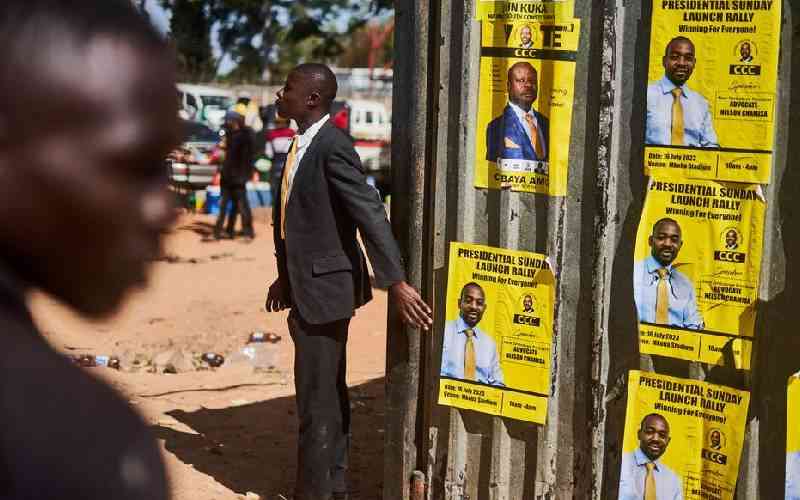×
The Standard e-Paper
Kenya’s Boldest Voice

Opposition CCC's campaign posters outside a party rally in Gweru Opposition CCC's campaign posters outside a party rally in Gweru. [Getty Images]
Electa Gumbi* is upset. Her cellphone is ringing - again. It's a call from Zimbabwe's ruling party encouraging her to vote incumbent President Emmerson Mnangagwa into a second term in the August 23 election. She is disturbed by the barrage of unsolicited calls and messages.